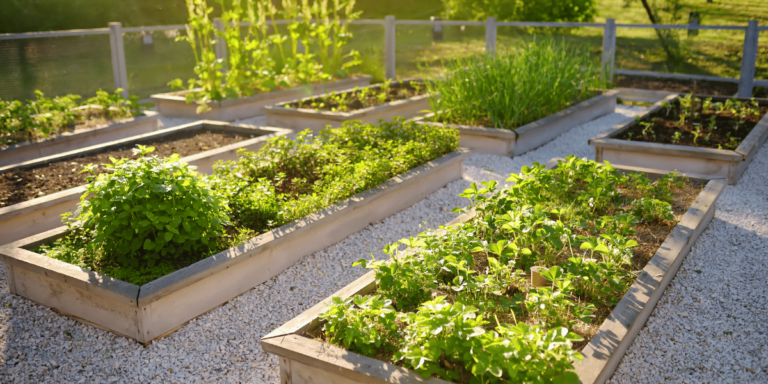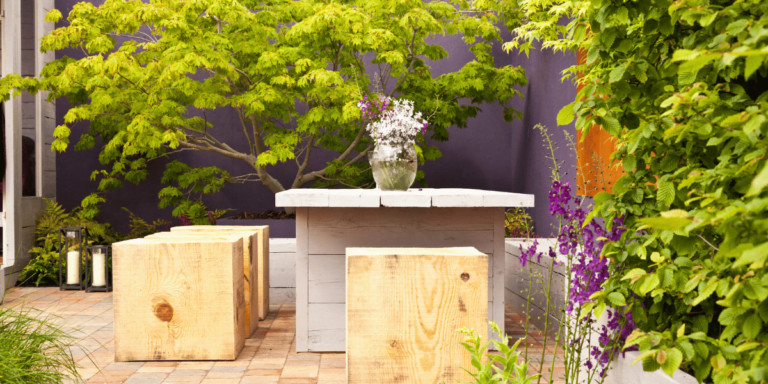Many people are interested in using natural, non-toxic methods for pest control in their gardens. Organic pesticides and fungicides are popular options, but there are also simple DIY solutions that can be effective and cost-effective. In this article, we will explore some easy and eco-friendly pest control methods that you can use to protect your garden naturally.
Key Takeaways:
- Using eco-friendly pest control methods helps protect your garden without harming the environment or beneficial insects.
- DIY recipes using baking soda can be effective against pests like aphids, spider mites, and whiteflies.
- Trap and drown snails and slugs in your garden using a beer trap.
- Neem oil is a natural insecticide that can be mixed with water and sprayed on plants to control pests.
- Strategic plant combinations can deter pests and safeguard your plants.
DIY Natural Pest Control Recipes Using Baking Soda
Baking soda is a versatile and affordable ingredient that can be used for various DIY pest control recipes. Its natural properties make it an effective solution for garden pest management without the need for harmful chemicals. One simple and effective recipe that you can easily make at home is a baking soda spray.
Baking Soda Spray Recipe
To create a baking soda spray, you will need:
- 1 tablespoon of baking soda
- 1 tablespoon of olive oil or cooking oil
- 1 teaspoon of liquid dish soap
- 1 gallon of water
Instructions:
- In a clean container, combine the baking soda, oil, and dish soap.
- Add the water and mix well until all the ingredients are thoroughly combined.
- Pour the mixture into a spray bottle.
- Shake the spray bottle gently before each use.
This homemade baking soda spray is effective against common garden pests such as aphids, spider mites, and whiteflies. The baking soda helps to control these pests by interfering with their cell membranes, ultimately leading to their demise. The addition of olive oil or cooking oil helps the spray to adhere to plant leaves, enhancing its effectiveness.
Note: Before using the baking soda spray on your entire garden, it’s recommended to test it on a small area of your plants to ensure they tolerate the spray well.
In addition to the baking soda spray, you can also use baking soda in other ways to naturally control pests in your garden:
- Deter rabbits: Sprinkle baking soda around plants that rabbits tend to frequent. This can help deter them from causing damage to your garden.
- Repel ants: Create a barrier by sprinkling baking soda along ant trails or places where they enter your garden.
- Discourage slugs: Sprinkle baking soda around slug-prone areas to create an unpleasant environment that slugs will want to avoid.
By utilizing baking soda in your DIY pest control recipes, you can effectively manage pests in your garden while avoiding the use of harmful chemicals.
Trapping Snails and Slugs with Beer
Snails and slugs can wreak havoc on your garden, munching away at your plants and leaving a trail of destruction in their wake. But fear not! There is a simple and effective method to control these slimy pests – the beer trap.
Here’s how it works. Take a shallow pan or bowl, bury it in your garden so that the rim is at ground level, and fill it with leftover flat beer. Snails and slugs are attracted to the scent of beer and will crawl into the trap, thinking it’s a delicious treat. However, once they enter the liquid, they won’t be able to escape and will ultimately drown.
Why does this method work? Well, snails and slugs are drawn to the yeast and sugars in the beer, which act as irresistible baits. The fermentation process creates an enticing aroma that they simply can’t resist. By luring them into the trap, you can significantly reduce their population in your garden.
This method is not only effective but also organic. You don’t have to worry about using harmful chemicals or pesticides that can be detrimental to your plants and the environment. The beer trap provides a natural and safe way to control snails and slugs, without causing harm to beneficial insects, pets, or wildlife.
It’s important to remember a few key tips when setting up your beer trap:
- Place the traps in areas where snails and slugs are known to frequent, such as shady spots, near plants that they are particularly fond of, or along garden borders.
- Check the traps regularly and empty them as needed. Replace the beer every few days to keep it fresh and enticing.
- Consider using a few traps throughout your garden to maximize the effectiveness.
By using the beer trap method, you can take control of the snail and slug population in your garden, protecting your precious plants and ensuring a beautiful and bountiful harvest.
| Benefits of Beer Traps for Snail and Slug Control | Drawbacks of Beer Traps for Snail and Slug Control |
|---|---|
|
|
Using Neem Oil for Pest Control
When it comes to organic pest control in your garden, neem oil is a natural and effective solution. Derived from the seeds of the neem tree, this oil contains a compound called azadirachtin, which acts as both a feeding deterrent and disruptor for insects. Neem oil can be mixed with water to create a spray that effectively controls a variety of garden pests, including mealybugs, aphids, thrips, and whiteflies.
One of the advantages of using neem oil is its versatility. It can be used on a wide range of plants, including edible ones, without causing harm. This makes it an ideal choice for gardeners who want to protect their crops from pests while maintaining organic practices.
To make your own organic pest spray using neem oil, follow these simple steps:
Making Neem Oil Spray
- Mix neem oil and water in a ratio of 1:10. For example, if you have 10 ounces of neem oil, mix it with 100 ounces of water.
- Add a few drops of liquid dish soap or insecticidal soap to the mixture. This helps the neem oil blend with water and adhere to the plant foliage.
- Pour the mixture into a spray bottle or garden sprayer.
- Shake the bottle or sprayer well to ensure the neem oil is evenly distributed.
- Spray the solution onto the leaves, stems, and other affected areas of the plants.
By following these simple steps, you can create your own organic neem oil spray for effective pest control in your garden.
It’s important to note that neem oil is most effective when used as a preventive measure or at the first sign of pest infestation. Regular applications will help keep pests at bay and protect your plants from damage.
In addition to its pest control properties, neem oil also has other benefits for your plants. It can help improve soil fertility, stimulate plant growth, and enhance the overall health and vigor of your garden. With its natural insecticidal properties and plant-nourishing benefits, neem oil is a valuable tool for any organic gardener.
Plant Combinations for Natural Pest Control
When it comes to pest control in the garden, plant combinations can be a valuable strategy. By strategically selecting companion plants that have repellent properties, you can naturally deter pests and protect your crops from damage. Here are some popular plant combinations that serve as natural pest control methods:
Marigolds and Tomatoes
Marigolds are known for their strong scent, which acts as a natural repellent for pests like greenfly and blackfly. When planted among tomato plants, marigolds help deter these harmful insects and protect the tomato crop. Additionally, marigolds attract beneficial insects like ladybugs, which feed on pests.
Sage and Carrots
Sage is not only a flavorful herb but also a powerful pest repellent. When grown alongside carrots, sage helps ward off pests like carrot flies. The strong aroma of sage acts as a natural deterrent, reducing the risk of infestation and promoting healthier carrot growth.
Nasturtiums and Cabbage
Nasturtiums are not only beautiful flowers but also effective pest diverts. When planted near cabbage plants, nasturtiums attract pests like caterpillars, diverting them away from the cabbage. This companion planting technique can help minimize damage to cabbage crops and maintain the overall health of the garden.
By incorporating these plant combinations into your garden, you can take advantage of natural pest control methods. These combinations not only deter pests but also promote a harmonious and vibrant garden ecosystem.
| Plant Combination | Pests Deterred | Benefits |
|---|---|---|
| Marigolds and Tomatoes | Greenfly and blackfly | Repels harmful insects, attracts beneficial insects |
| Sage and Carrots | Carrot flies | Wards off pests, promotes healthier carrot growth |
| Nasturtiums and Cabbage | Caterpillars | Diverts pests from cabbage, maintains garden health |
Beneficial Nematodes for Soil Pest Control
When it comes to organic pest control in the garden, beneficial nematodes are a valuable tool. These microscopic roundworms offer an effective solution for controlling soil-dwelling pests. Beneficial nematodes release bacteria that target and kill host insects, including root maggots, cutworms, and grubs. While these helpful nematodes naturally exist in small numbers in soils, introducing them in larger quantities can significantly reduce pest populations.
To utilize beneficial nematodes for soil pest control, apply them directly to the soil in the affected areas. This can be done by mixing the nematodes with water and then thoroughly watering the treated soil. The nematodes will penetrate the soil and search for their host insects, helping to eliminate the pest problem at its source.
Benefits of Using Beneficial Nematodes
- Organic Pest Control: Beneficial nematodes provide a natural and chemical-free approach to pest management in the garden.
- Effective against Soil-Dwelling Pests: These nematodes specifically target soil-dwelling pests like root maggots, cutworms, and grubs, effectively reducing their populations.
- Safe for Plants and Beneficial Insects: Beneficial nematodes do not harm plants or beneficial insects, making them an environmentally friendly option for pest control.
- Long-Lasting Results: Once introduced into the soil, beneficial nematodes can persist and continue to control pests for an extended period.
Integrating beneficial nematodes into your pest control strategy can help maintain a healthy and thriving garden, free from the damage caused by soil-dwelling pests. Whether you’re dealing with root maggots, cutworms, or grubs, these tiny allies can make a big impact on your organic gardening efforts.
Hand-Picking Insects for Pest Control
When it comes to organic pest control, sometimes the simplest methods are the most effective. One such method is hand-picking insects from your garden. By manually removing pests like slugs, squash bugs, tomato hornworms, and Japanese beetles, you can reduce their populations and minimize damage to your plants.
Hand-picking insects is a safe and organic approach that doesn’t require any additional materials or chemicals. All you need is a keen eye and a pair of gloves, if desired. Regular monitoring of your plants allows you to identify and remove pests before they can cause significant harm.
Here are the steps to follow for hand-picking insects:
- Inspect your plants regularly, especially the undersides of leaves and along stems, where insects often hide.
- Identify the pests that are causing damage to your plants.
- Gently pick off the insects by hand and either squash them or drop them into a bucket of soapy water to dispose of them.
- Continue monitoring your plants and repeat the process as necessary.
Hand-picking insects not only removes immediate threats to your garden but also promotes a healthier ecosystem by avoiding the use of chemical pesticides. By taking a proactive approach to pest control, you can nurture your plants with natural care and minimize the impact on beneficial insects and the environment.
Benefits of Hand-Picking Insects:
Hand-picking insects for pest control offers several advantages:
- Effective: By directly removing pests from your plants, you eliminate their destructive presence and prevent further damage.
- Organic: This method aligns with organic gardening principles and avoids the use of synthetic pesticides.
- Preserves Beneficial Insects: Since hand-picking targets specific pests, you can spare beneficial insects that contribute to a healthy garden ecosystem.
- No Chemical Residues: With hand-picking, there is no risk of chemical residues on your harvest, making it safe for consumption.
- Cost-effective: Hand-picking insects requires minimal investment, and it can save you money on pest control products.
Keep in mind that hand-picking insects may not be practical for large infestations or for pests that are challenging to see or handle, such as microscopic mites or flying insects. In such cases, consider combining hand-picking with other organic pest control methods to ensure comprehensive protection for your garden.
To illustrate the process of hand-picking insects, here’s an image that shows a gardener carefully removing pests from a plant:
By incorporating hand-picking insects into your natural pest management routine, you can maintain a thriving garden while minimizing the use of chemicals. This hands-on approach allows you to actively engage with your plants, fostering a deeper connection to the natural world and promoting sustainable gardening practices.
Conclusion
Eco-friendly pest control methods offer a safe and effective solution to protect your garden from pests, while also promoting a healthy and thriving environment. By adopting natural pest control solutions, such as DIY recipes, plant combinations, and organic sprays like neem oil, you can effectively manage pests without harming the ecosystem or beneficial insects.
Using DIY recipes, such as baking soda sprays, can help deter pests like aphids, spider mites, and whiteflies, while avoiding the use of toxic chemicals. Additionally, trapping snails and slugs with beer provides an organic method to control these common garden pests. Incorporating neem oil, a natural insecticide, can effectively manage pests like mealybugs, aphids, and thrips without posing harm to beneficial insects or edible plants.
Furthermore, utilizing plant combinations for natural pest control can create a harmonious ecosystem that repels pests and protects neighboring plants. Complementary plants like marigolds, sage, and nasturtiums can help deter pests and divert them away from vulnerable crops, reducing the need for chemical interventions. Additionally, beneficial nematodes, when introduced to the soil, can control soil-dwelling pests by releasing bacteria that kill host insects.
Ultimately, hand-picking insects is a simple and effective method of organic pest control, reducing the need for chemical interventions. Regular monitoring and manual removal of pests like slugs, squash bugs, and Japanese beetles can help maintain a healthy balance in the garden.
By adopting these eco-friendly pest control methods and embracing natural solutions, you can create a thriving garden that is pest-resistant and environmentally sustainable. Protecting your garden naturally not only ensures the health of your plants but also contributes to a more eco-friendly and sustainable gardening practice.
Frequently Asked Questions
What are some eco-friendly pest control methods for my garden?
There are several eco-friendly pest control methods you can use to protect your garden naturally. These methods include utilizing DIY natural pest control recipes, trapping snails and slugs with beer, using neem oil for pest control, practicing plant combinations for natural pest control, applying beneficial nematodes for soil pest control, and hand-picking insects for pest control.
How can I make DIY natural pest control recipes using baking soda?
Baking soda can be used to create various DIY natural pest control recipes. One simple and effective recipe is a baking soda spray, which requires mixing baking soda, olive oil or cooking oil, and water. This spray can effectively control pests like aphids, spider mites, and whiteflies without harming beneficial insects. Baking soda can also be used to deter rabbits, ants, and slugs in the garden.
How can I trap snails and slugs using beer?
To trap snails and slugs in an organic and effective way, you can bury a shallow pan or bowl in the garden and fill it with leftover flat beer. The snails and slugs will be attracted to the beer and will drown in the container. This method helps reduce the population of these pests in your garden.
How can I use neem oil for pest control?
Neem oil is a natural and effective pest control option that can be used to manage various garden pests. It can be mixed with water and sprayed on plants to control pests like mealybugs, aphids, thrips, and whiteflies. Neem oil is safe for use on edible plants and does not harm beneficial insects.
What are some plant combinations I can use for natural pest control?
Plant combinations can be a useful strategy for natural pest control in the garden. For example, marigolds can deter greenfly and blackfly when planted among tomato plants. Sage can ward off pests when grown with carrots, and nasturtiums can divert caterpillars away from cabbage plants. By strategically combining plants, you can create a natural defense against common garden pests.
How can I use beneficial nematodes for soil pest control?
Beneficial nematodes are microscopic roundworms that can be used to control soil-dwelling pests in the garden. These nematodes release bacteria that kill host insects, such as root maggots, cutworms, and grubs. They can be applied to the soil and should be watered thoroughly for best results.
How can I hand-pick insects for pest control?
Hand-picking insects can be a simple and effective method for pest control in the garden. Many pests, such as slugs, squash bugs, tomato hornworms, and Japanese beetles, can be easily removed by hand. Regular monitoring and manual removal of pests can help keep their populations in check and reduce damage to plants.
Why should I choose eco-friendly pest control methods?
Eco-friendly pest control methods offer a safe and effective way to protect your garden from pests without harming the environment or beneficial insects. By using DIY recipes, plant combinations, natural sprays like neem oil, and other organic methods, you can create a pest-resistant garden that is healthy and thriving. These methods not only provide effective pest control but also contribute to a sustainable and eco-friendly gardening practice.

















